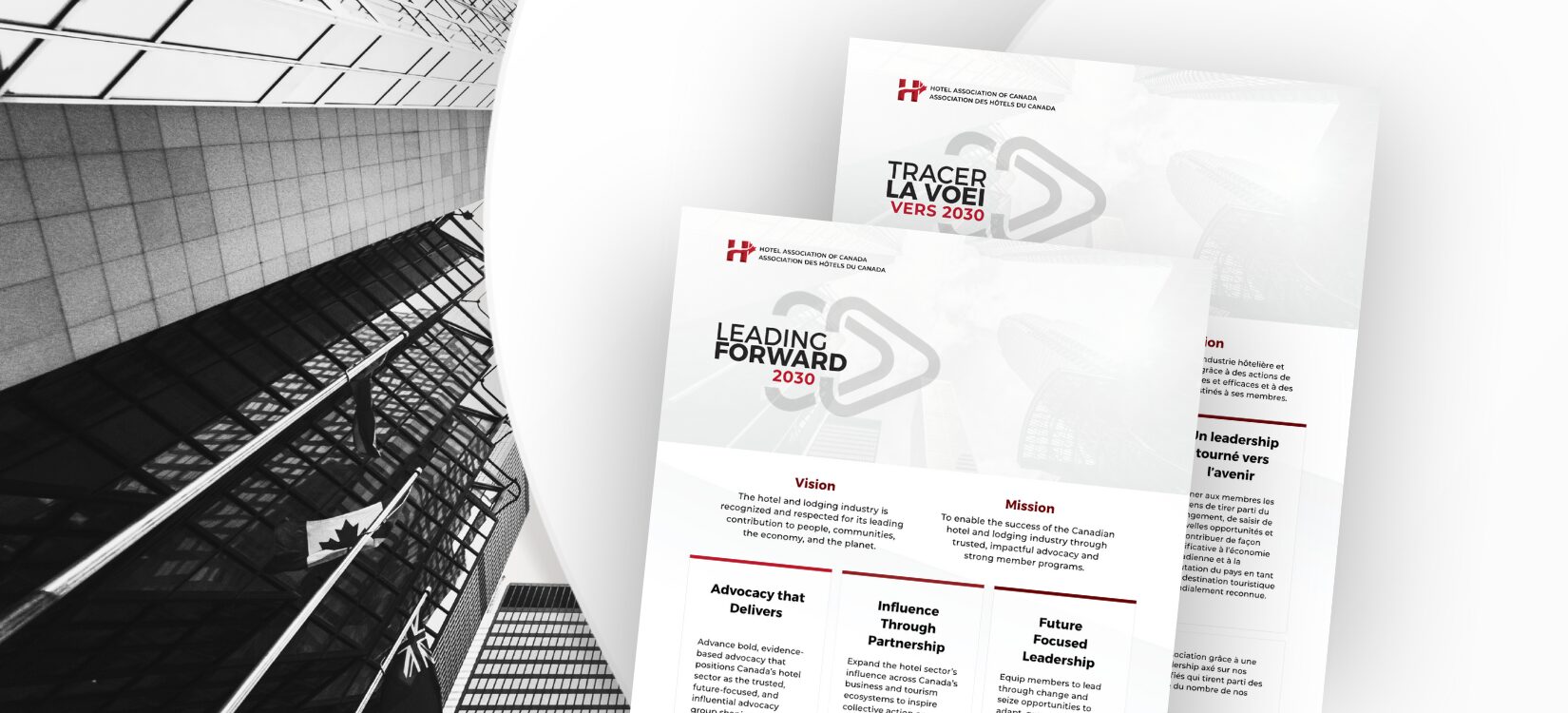Budget 2022: HAC Analysis & What It Means for You
The 2022 Federal Budget, tabled today at 4pm, comes as Canada and the world are facing unprecedented and unpredictable circumstances.
TOPLINE HIGHLIGHTS
Here are the highlights for hotels:
- Strong signals point towards borders staying open in the future
- Significant investments to reduce the immigration processing backlog for temporary and longer-term workers
- A new Federal Tourism Growth Strategy
- Noteworthy investments into affordable housing, including rental and new homes
HAC ANALYSIS
The title for the Budget is “A Plan to Grow our Economy and Make Life More Affordable.” The government is placing its emphasis on policies that promote economic growth and affordability. While some new spending measures were announced, the government is committed to reducing the debt-to-GDP ratio, tamping down inflation, and implementing pro-growth policies in targeted sectors. Notably, tourism is acknowledged to be a key growth sector.
The government has removed all funding associated with border closures and quarantine program spending, which is a strong signal that they intend to keep the border open. There was also specific reference to the government’s intent to minimize the impacts of disruptions and unpredictable market conditions in our sector. This is the shift we were looking for from this document and is directly in line with our advocacy work.
Building on Monday’s announcement on the Temporary Foreign Worker Program, in which accommodations were listed as a priority sector, this Budget places further supports behind expedited processing. This investment is important and will help deal with backlogs as the industry winds up for summer. Commitments were also made to ensure that Canada’s immigration system values the skills most needed by industries like tourism. These were among our key asks leading into the Budget.
A new Federal Tourism Growth Strategy will be launched to rebuild the sector. It will be led by the Minister of Tourism and HAC will be a key input stakeholder. We will have the opportunity to shape this strategy and define what future investments will be needed to support our path to recovery. Certainly, labour will be a central pillar.
Having received a significant funding boost in last year’s Budget, Destination Canada will be well-positioned to execute strong marketing campaigns as the industry starts to recover.
The Budget makes investments into affordable housing – including rental housing, which is in short supply for hotel workers.
The pandemic support measures are being wound down. This is not surprising given the industry’s overall recovery track.
Overall, this Budget responds to our key asks of open borders, targeted labour policies, and a commitment to make tourism a priority sector for the growth of our economy.
BUDGET DETAILS RELEVANT FOR HOTELIERS
- Budget 2022 winds down all COVID border testing and quarantine program spending, signalling the government’s strong intent to keep the borders open.
- The document also recognizes the role of government in minimizing the impacts of disruptions and unpredictable market conditions on the tourism sector.
- The Budget commits to continue supporting and working with the tourism sector.
Announcement of a new post-pandemic Federal Tourism Growth Strategy which will plot a course for growth investment and stability. - $20 million over two years in support of a new Indigenous Tourism Fund to help the Indigenous tourism industry recover from the pandemic and position itself for long-term, sustainable growth.
- $4.8 million over two years to the Indigenous Tourism Association of Canada to support its operations to help rebuild and recover from the pandemic.
- $55 million over five years to Parks Canada for the Trans Canada Trail.
Addressing the Labour Shortage
- Short term: Improving the Temporary Foreign Worker Program
- $30 million for a Trusted Employer Program to reduce red tape for repeat employers to be announced later this year.
- $65 million over three years to increase capacity to process employer applications within established service standards.
- We also note that the Minister of Labour, Carla Qualtrough, announced on Monday that effective April 30th that employers in the accommodation sector will be allowed to hire up to 30% of their workforce through the Temporary Foreign Worker (TFW) Program, including in areas where the unemployment rate is above 6%. In addition, Labour Market Impact Assessment will be valid for 18 rather than 9 months. The government will no longer limit low-wage positions that can be filled through TFW in seasonal industries.
- Long Term: Addressing Immigration Barriers
- A re-commitment to amend the Immigration and Refugee Protection Act to improve Canada’s ability to select applicants that match its changing and diverse labour force needs from candidates seeking to become permanent residents through the Express Entry System.
- $385.7 million over five years, and $86.5 million ongoing, for Immigration, Refugees and Citizenship Canada, the Canada Border Services Agency, and the Canadian Security Intelligence Service to facilitate the timely and efficient entry of a growing number of visitors, workers, and students.
- A federal review of the housing crisis and the impact on Canadian renters and homeowners.
- $10 billion to speed up housing construction and other measures to cool the housing market.
- Budget 2022 re-asserts the government’s commitment to work with international partners to develop a multilateral tax framework for Digital Service providers.
- The government will implement its own Digital Services Tax if a multilateral agreement is not reached by 2024.
 Advancing the Hotel Sector’s Agenda: HAC Champions Industry Priorities in Ottawa
Advancing the Hotel Sector’s Agenda: HAC Champions Industry Priorities in Ottawa
HAC continues to bring the hotel industry’s voice to federal consultations and parliamentary studies - advocating for practical policies that support workforce access, reduce red tape, and strengthen investment across the sector. HAC has delivered six federal submissions in the current parliamentary session, focused on workforce access, youth employment, rural development, p...
Read MoreFebruary 19, 2026 — On National Human Trafficking Awareness Day in Canada—and throughout the year—Canada’s hotel industry is united in taking action to ...
Read More
Our industry is moving faster than ever. Markets are fluctuating. Talent pressures are intensifying. Global competition is redefining the playing field. But thi...
Read More
The Hotel Association of Canada (HAC) is pleased to announce that Mandy Farmer, CEO of Accent Inns Inc., has been appointed Chair of the HAC Board of Directors ...
Read More